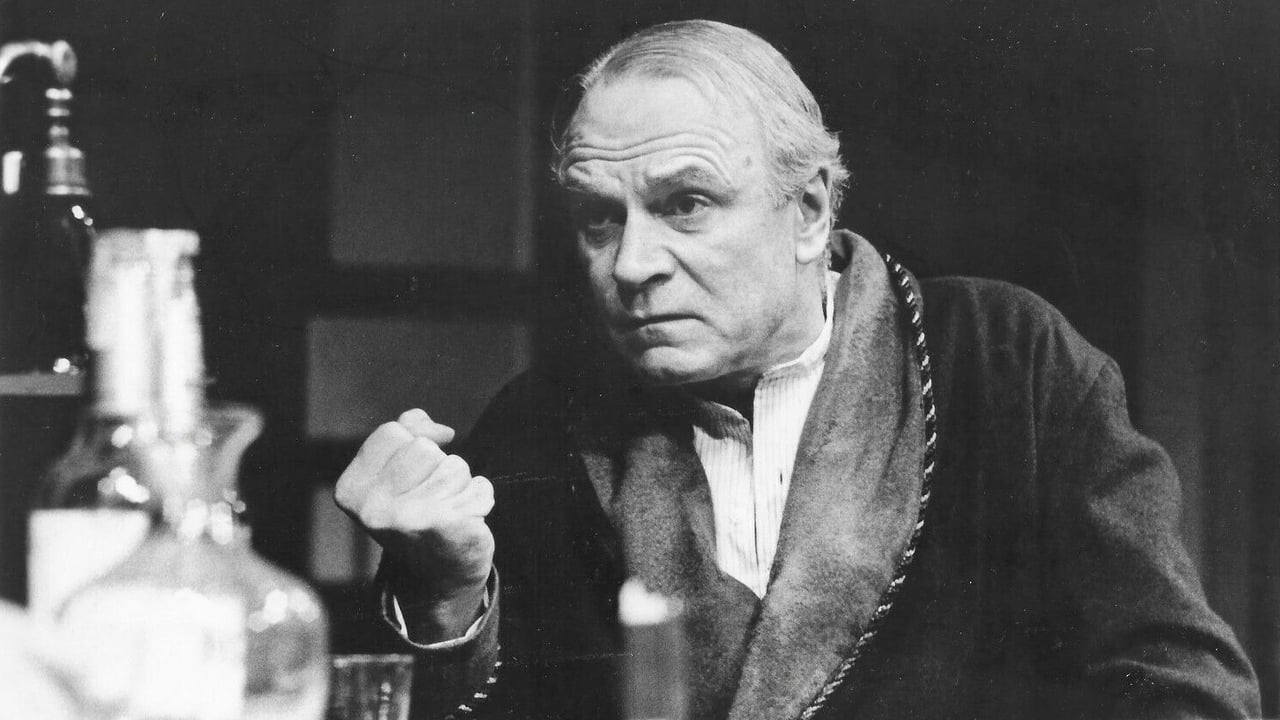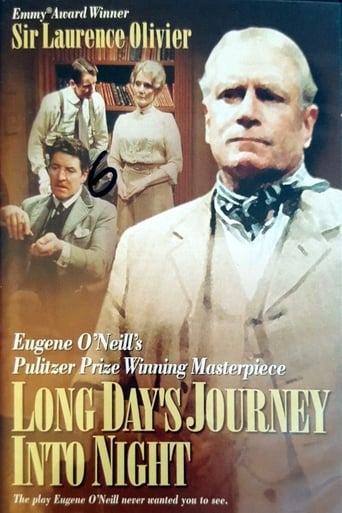

This story has more twists and turns than a second-rate soap opera.
... View MoreThe joyful confection is coated in a sparkly gloss, bright enough to gleam from the darkest, most cynical corners.
... View MoreOne of the worst ways to make a cult movie is to set out to make a cult movie.
... View MoreThere's no way I can possibly love it entirely but I just think its ridiculously bad, but enjoyable at the same time.
... View MoreIt is very difficult to sit through this last of O'Neill's works. It is nearly three hours in length and is repetitious at times. What one really views it for on repeated viewings are the performances. In this version Olivier earns his Emmy Award with the best performance I have seen of the elder James Tyrone. In the other two I've seen, Ralph Richardson was too dry and Jack Lemmon too mannered.Cummings does well as Mary Tyrone, but both Bethel Leslie and Katharine Hepburn were better. The sons fare well. Dennis Quilley is quite good as Jamie, my only problem being his facial resemblance to Robert Preston - I kept expecting him to break into patter song to warn the family of trouble brewing in River City. He is topped however by Kevin Spacey's Jamie. For me the revelations was Ronald Pickup as Edmund. I'd only seen Pickup in self-contained, proper British roles and this is the first time I've seen him let go emotionally. He was one of the two best Edmunds I've seen, the other being Peter Gallagher, who takes the lead for me.The production runs two hours and 41 minutes.
... View MoreEugene O'Neill was one of America's greatest writers and this play comes at the end of his long career. LDJIN is the most autobiographical of his plays, and it is significant that he didn't write from his own experience until the end of his life, when he could understand it.But a play isn't necessarily good just because it is written from the author's experience, it takes imagination too, and O'Neill has it, and it is imagination that helps O'Neill forgive his stingy and tyrannical old father. Olivier is great as the father, at once authoritative and poignant, regretting the waste of his talent, and Chapman, Pickup and Quilley are all fine as his enslaved family.I first saw this production when I was 16 and I have never forgotten it. It's slow and wordy, but if you stick with it it has a humanity and compassion that set it far above most plays of the twentieth century.
... View MoreA very difficult work to produce in the theatre and no filmed version can match a stage production, however, in my opinion, the best filmed production is the one featuring William Hutt as Tyrone.This filmed version is from the production that was staged at the Stratford Festival in Canada a few years ago. On stage it was so successful it was brought back the following year. I am reluctant to use the term "definitive", however, it may be applicable to William Hutt's interpretation of Tyrone. But what works best on this filmed version is the true ensemble nature of the cast which Stratford is famous for. At the 17th Genie Awards Hutt won best actor, Martha Henry {Mary} best actress, and Peter Donaldson {Jamie} best supporting actor. No discussion of filmed versions of "Long Day's Journey into Night" is complete without considering this 1996 Canadian production. I'm excluding the 1982 television version, laudable though it is, as featuring an all African American cast, the Irish references were dropped.
... View MoreSorry to disagree, but I found this production very disappointing. Almost unwatchable. One of the most verbose plays ever written, but even aside from that, as the reviewer states above, this version is extremely stage-bound, and the actors, even Olivier, deliver substandard performances. Constance Cummings is definitely no Katherine Hepburn, not only judged by her weak portrayal here, but by her similarly spotty career. The best that can be said of the actors who play the sons is that they certainly look like they could be brothers in real life. The story may have been difficult for O'Neil to write, and scandalous when it was first performed, but it's now incredibly dated. They fight, they make up, they tell stories of the past, they fight again, then make up, and on and on. Redundant to the nth degree. The earlier, and in some versions, shorter 1962 version is far superior to this seemingly unending production. Just my two cents.
... View More